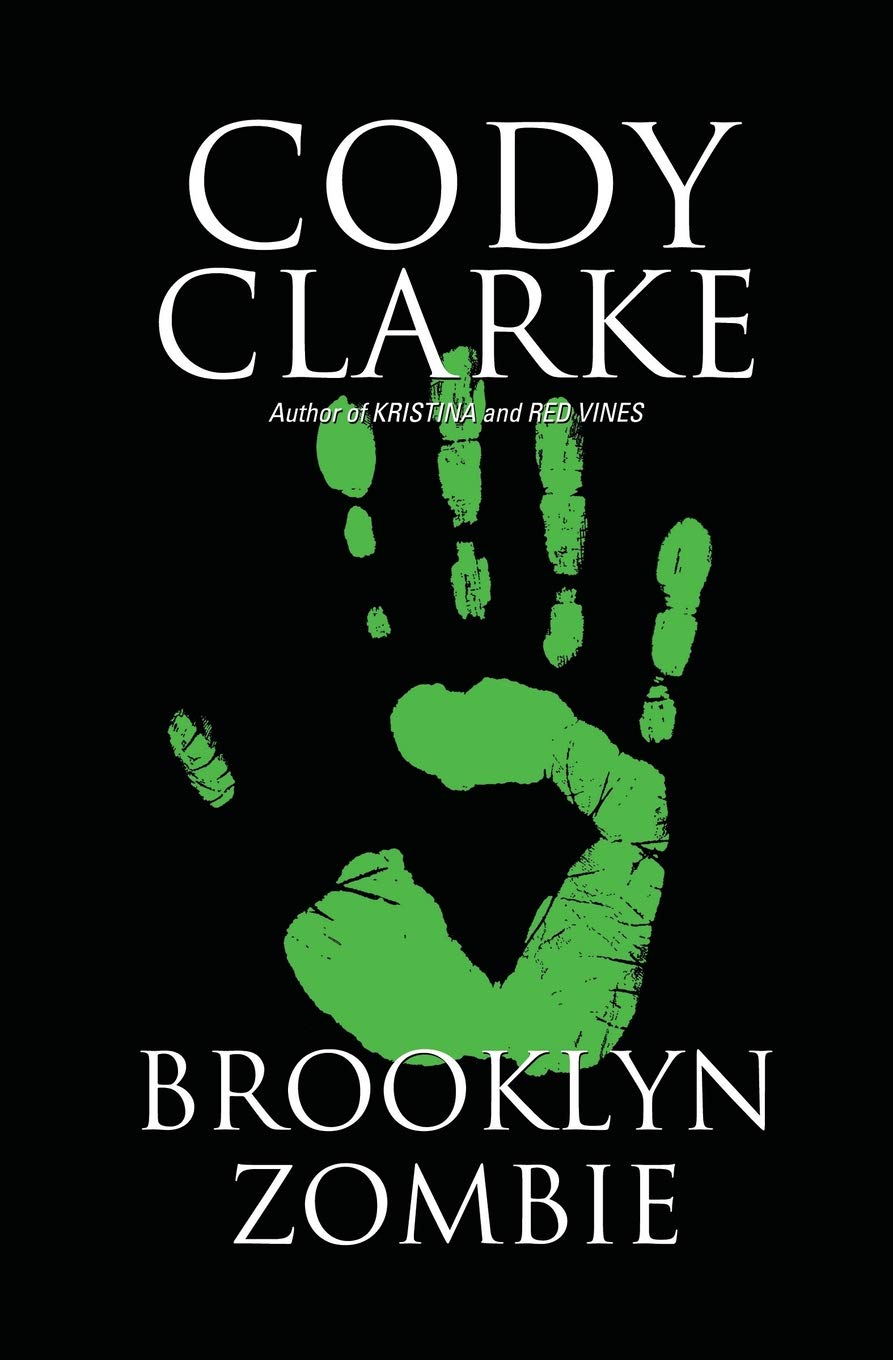
“It’s like the gates of hell briefly opened inside of an abandoned building and demons had a free-for-all.”
Considering the modest production budgets that Cody Clarke utilizes to make his independent films, it is not surprising that he chose to transition his massive scale zombie apocalypse narrative to book form. The only other options were to sell out and get studio funding—something he would not do even if it were offered to him—or to let it all on the cutting room floor. Like many artists, once he has an idea he must cleanse himself of it. And so he chose to release Brooklyn Zombie as a book.
Clarke’s indie film studio (Kill the Lion Films) takes its name from a Charles Bukowski quote—“True revolution comes from true revulsion; when things get bad enough the kitten will kill the lion.” The influence of the poet and author is evident in Brooklyn Zombie, as Clarke writes with a very loose style, his attention easily diverted by interesting thoughts; or, more frequently, the intricate details sex, both real and imagined. Am I suggesting the latter is uninteresting? Maybe. At first I was mildly put off—I’m no prude, I just find myself lacking enthusiasm for the vast majority of depictions of sex in popular media—but Clarke’s sheer commitment to sexual fantasies eventually became a matter of peculiar interest. I’d like to say it’s neither here nor there but Clarke’s predilection for forbidden fruits is so prominent that it’s impossible to look past it. Anyway, I digress; while oddly pervasive, the novel doesn’t rise or fall on its erotic idiosyncrasies.
Told from the points of view of a large cast that includes children, teachers, cops, and principals, the book explores themes of social alienation, youthful urges, friendship, and reconciliation, as a young boy named Milkinson develops an appetite for human flesh. When the desire first comes upon him, he curiously experiments by carving up his own knee, slicing off bits of meat to sustain himself. But eventually, inevitably, he moves on to different types of prey. The authorities catch on to him as gutted victims are found strewn about the streets and the city descends into mass hysteria. Some young rebels march in support of the zombie child while others want him shot on sight. Meanwhile, Milkinson’s teacher and the school principal view this episode as a traumatized child lashing out at those who have always put him down. It ends with Milkinson intentionally infecting his friends so they can all enjoy some kind of homosexual zombie orgy.
It is evident that large sections of Brooklyn Zombie were written for the screen and later converted to prose without much thought given to the flow of the text. This is unfortunate, as a few more rounds of polish could have gone a long way toward making Clarke’s spitballing flow more palatable. I found that my favorite parts were when the plot threads were all but dropped and the author relaxed into a mode of cultural commentary that he often employs on social media and with which he seems more confident and comfortable than when trying to write artfully. There’s a strong sense of humor exemplified particularly by some clever wordplay, and a tendril of pathos extended toward those lost in the apathy and malaise of modern culture, but too often these elements are lost amidst sloppy writing.
And I think that is the main problem with Brooklyn Zombie—it began as a very visual story in Clarke’s mind’s eye. Although the main thrust of the narrative comes through just fine, I think that the clumsiness of the prose often precludes the reader from conjuring the mental images that the author was aiming for. And since it was initially intended as a film a large portion of the book is dialogue and action that are lacking the creative flourish and vitality that even amateur actors would bring to the role. Clarke is a jack of all trades, but most of the things he excels at involve the art of filmmaking. Writing a novel showcases his energetic spirit and zany thoughts on myriad subjects but doesn’t give his strongest traits any platform at all.